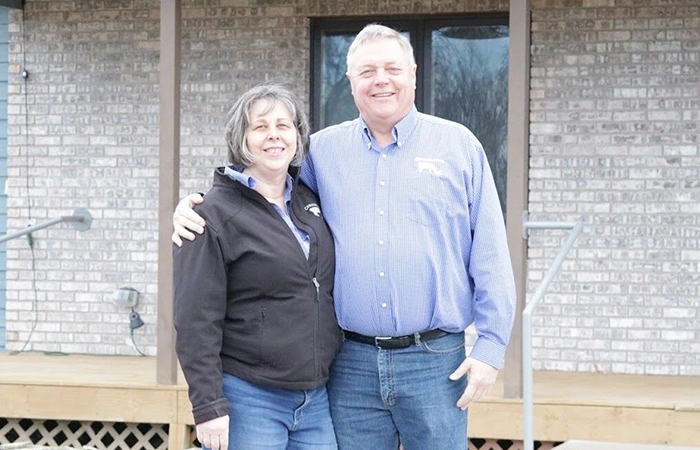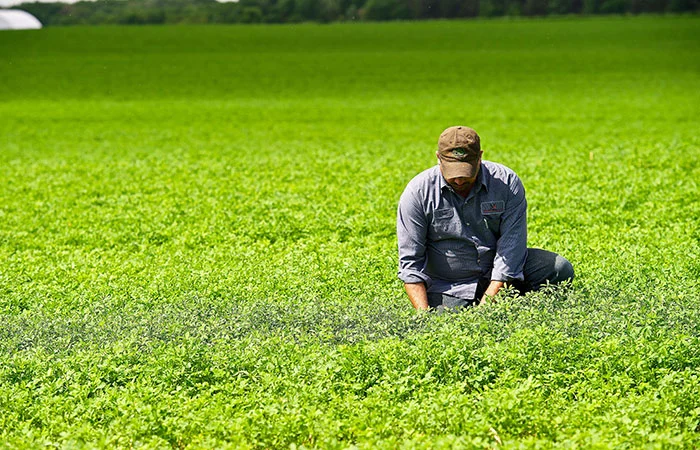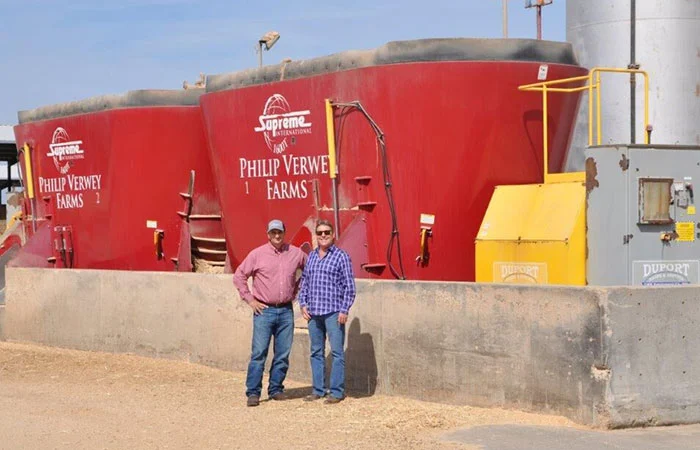2019 Sustainability Awards Highlight Dairy Community's Continued Progress
The U.S. Dairy Sustainability Awards launched in August 2011 to recognize innovative work in the dairy community that provides environmental, social and economic benefits.
Now in its eighth year, the program, put on by the Innovation Center for U.S. Dairy, has recognized over 50 U.S. dairy farms, businesses and collaborative partnerships as leaders in taking care of people, animals and the planet.
Each year, an independent judging panel of top dairy conservation and commercial experts consider innovation, scalability and replicability when choosing winners.
This year’s winners take measures both big and small to make a positive impact on Earth’s resources. Read on for stories of reduced greenhouse gas emissions, improved on-farm technology and more.
Outstanding Dairy Farm Sustainability
Cinnamon Ridge Farms (Donahue, Iowa)
Cinnamon Ridge Farms owner John Maxwell, pictured above with his wife, Joan, found an economic and environmentally sustainable solution to sourcing cow feed early in his career by planting a cover crop during the winter season. The crop, rye grass, survived harsh growing conditions while being great nutrition for his cows. The cover crop prevents nutrient runoff and erosion, building healthier soil for corn or soybean crops. The farm also became a destination for food waste, accepting 2,000 pounds of coffee creamer from a manufacturing company each week instead of ending up in a landfill. The creamer provides a carbohydrate source for the cows’ diet with added flavor.
Majestic Crossing Dairy (Sheboygan Falls, Wisconsin)
The 2,000 cows at Majestic Crossing Dairy are the result of a unique strategic shift when co-owner Dean Strauss, above, began building a herd of crossbreeds. The cows tend to be smaller in size, requiring less food and producing less manure. Strauss has adopted a GPS guidance system on his tractors and other machinery that helps identify efficiencies in seed distribution as well as reducing fuel, pesticide and fertilizer use on the 3,600 acres of crops grown to feed the cows. Majestic Crossing also invested in robotic milking machines that have reduced his farm’s water use by 30 percent, or about 20 gallons per cow each day.
Philip Verwey Farms (Hanford, California)
Philip Verwey had a notion to implement changes on his 9,000-cow Philip Verwey Farms to help improve air quality. His idea: Rather than blending feed ingredients for his cows in a mixing wagon powered by a diesel tractor, he would blend using an electric stationary mixer. Verwey, above right with Frank Cardoza, applied for funding through the San Joaquin Valley Air Pollution Control District’s Technology Advancement Program to help convert his feed-mixing program. The changes cut his dairy’s tractor-related emissions substantially, the equivalent of taking 7,800 cars off the road. His success led to an expanded program and inspired other farms to apply for funding.
Outstanding Dairy Supply Chain Collaboration
General Mills and Foremost Farms (Reed City, Michigan)
To reduce greenhouse gas emissions and add environmental benefits, General Mills and Foremost Farms USA convened a powerful network of 16 dairy farmers and other experts to assess and implement improvements using a science-based, on-farm assessment tool to provide a comprehensive estimate of a farm’s GHG emissions and energy use. Participating farms saw a combined 11 percent reduction in GHG over a three-year period, which outperformed the national and regional benchmark averages. The FARM Environmental Stewardship module is helping farmers across America improve efficiencies, reduce costs and track their performance against environmental goals.
Outstanding Community Impact
Gleaners Community Food Bank (Detroit, Michigan)
Gleaners Community Food Bank, which serves the emergency food network in southeastern Michigan, ensured more clients will have access to fresh, nutritious milk by partnering with the dairy community. Together, they established a fundraising campaign that’s built to last, and they mastered the logistical challenge of getting refrigerated milk to families in need – with the help of a mobile food pantry and an improved distribution model. In 2018, they successfully provided 229,000 gallons of milk to those in need.




















